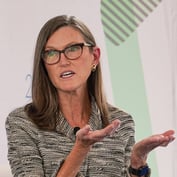What You Need to Know
- More than half of participants said succession planning is challenging because older and younger generations' values are hard to reconcile.
- Three-quarters said the next generation is more focused on ESG and responsible investing.
- Wanting to give back is the top motivator for 69% of family offices’ philanthropy, but they also expect practical, tangible benefits.
Growing differences across generations and rising economic and social disruption are leading family office executives to adjust their approaches in a number of areas, including succession planning, investing and philanthropy management, according to a survey released Thursday by BNY Mellon Wealth Management Global Family Office.
“The past few years have been unparalleled, marked by pandemic-driven economic turbulence and rising social and political debate, which has brought discussions on the role of wealth to the forefront,” Vincent Hayes, global head of family office at BNY Mellon Wealth Management, said in a statement.
“This has led us to a tipping point — while great change is underway, the scope of what these organizations need to accomplish has also significantly expanded.”
The Harris Poll fielded the online survey from Oct. 14 to Nov. 8, to 200 key personnel at global family offices managing at least $150 million in assets, and received responses from some 120 of them who manage more than $500 million.
Reconciling Differing Generational Values
More than two-thirds of family office respondents said succession planning is either extremely or very important. At the same time, 42% acknowledged that succession planning is a difficult topic and the tendency is to avoid it.
More than half of survey participants said succession planning is challenging because the values of older and younger generations are hard to reconcile.
Three-quarters said the next generation is more focused on environmental, social and governance and responsible investments, and said the next generation is more willing to forgo some profit for the sake of social good.
Other obstacles also get in the way of succession planning. Forty-five percent of family offices believe that next-generation leadership is generally more difficult to engage owing to responsibilities of their own family or career, and 25% said they are not equipped to engage the next generation of leaders.
Many family offices in the survey also ascribed succession planning challenges to lack of expertise and difficulty in obtaining trusted advice. Forty-two percent said they need external help in developing an effective succession plan, and 39% said that it is hard to find a trusted external partner to help with succession planning.
Almost Ready for Crypto
According to the study, 77% reported that they are engaging with cryptocurrencies by either investing in or exploring them, and 72% of those that have actively invested in cryptocurrencies said they plan to increase their exposure. And 64% indicate that cryptocurrency speaks to the aspirations of next-generation investors.
The study explored what motivates family offices to incorporate cryptocurrencies into their portfolios. Seventy percent said they do so to keep up with new investment trends, and 45% cited interest from the next generation of family office successors.








 February 24, 2022 at 03:50 PM
February 24, 2022 at 03:50 PM












 Copyright © 2024 ALM Global, LLC. All Rights Reserved.
Copyright © 2024 ALM Global, LLC. All Rights Reserved.